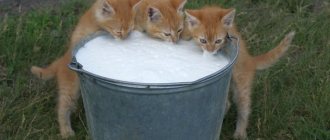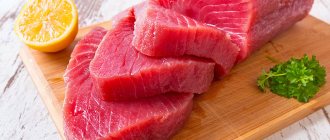Feeding a domestic cat often raises questions, especially if we are not talking about dry industrial food, but about natural products. After all, the common belief that a cat can only eat raw fish, milk and sour cream turns out to be wrong. Therefore, owners who care about the health and well-being of their pet, before treating it with any food, are interested in whether it is possible to give it to cats? The same can be applied to such a familiar product in the human diet as eggs. Do cats need it, and if so, in what form?
Do cats eat eggs?
When feeding cats, be guided by what these animals consume in the wild.
The cat is a predator whose diet is based on small rodents, amphibians and birds. From time to time, cats also eat eggs, climbing trees and destroying bird nests. Therefore, the cat can be fed with them, but in moderation. They are given to small kittens from 2-3 months of age. Unlike a dog or a human, a cat is a classic predator that has not developed omnivory. Therefore, pets must be fed mainly animal proteins (proteins). First of all, this includes meat. But since it is expensive, you can buy meat by-products: heart, kidneys, tripe, intestines, lungs and internal organs. However, even in this case, the daily ration will remain quite expensive.
If the owners’ income is limited, then veterinarians in this case recommend changing part of the menu to eggs. Firstly, this product contains many animal proteins and valuable amino acids, which is beneficial for animals. Secondly, cats in the wild eat eggs and digest them well, so there is definitely no harm from them.
Rules for consumption and introduction into the pet’s diet
Despite the benefits of eggs, it is impossible to transfer an animal to a mono-diet. Meat should remain the basis of your pet's diet. The delicacy only complements the menu.
Daily norm
The daily rate depends on the age of the animal. For cats under 1 year old, add a whole egg to their food once a week. Adult pets are fed up to 2-3 pieces per week, but the treat is not given entirely. The animal is offered a third of an egg per meal. It is allowed to add crushed shells to food as an additional source of calcium, but only in the absence of urolithiasis.
Restrictions
Eggs are offered to kittens older than 3.5 weeks. The product is included in complementary foods if you plan to eat natural products in the future. Start with 1/5 of the crushed yolk. The treat is given once a week. In the future, the portion size is adjusted to a teenage size.
Eggs can be given to kittens.
Adult cats eating dry food are not given eggs. Digestion of granules and natural products requires different enzymes, so they cannot be combined.
The treat is not offered to animals with kidney, liver or cardiovascular diseases. After the veterinarian's permission, protein can be given, but in limited quantities.
Composition and benefits of eggs
Proteins are large and long molecules (thread-like) that are made up of amino acids, they are usually twisted or crumpled, which is why they take up less space. In structure, proteins can be compared to strings of beads. In such an association, the chain itself will be a protein, and the beads will be amino acids. There are many of them, including lysine, tryptophan, methionine and other compounds.
Egg white is the building material for the chick, so it contains all the necessary amino acids that must be involved in the creation of a living organism. This is why eggs are so beneficial for cats. They contain a lot of components that improve the condition of fur, claws, and teeth. Periodic feeding with eggs reduces the likelihood of developing cardiovascular diseases, strengthens the immune system and delays old age.
Eggs include phosphorus, calcium, sodium, potassium, iron and magnesium. These are the most essential microelements that are responsible for the health of bones, teeth, blood vessels, nervous and muscle tissue. In addition, regular intake of these elements reduces the risk of developing hormonal and intestinal diseases, improves the condition of the skin and coat.
This product is especially rich in vitamins B1, B2, B6, B12, A, PP. One chicken egg replenishes one third of an adult pet’s daily requirement for vitamins. Carotene is responsible for the condition of the eyes, their normal development and vision. B vitamins regulate hair growth, the formation of proteins in the body, and the activity of the immune, hematopoietic, nervous and muscular systems.
Precautions and possible harm
Do not add salt to eggs or give your pet a product with uncrushed shells.
The latter injures the delicate mucous membranes of the animal’s gastrointestinal tract. There is a risk of bleeding. Excess salt in the diet will make the blood thicker and increase the load on the kidneys and heart. Eggs can harm an animal if abused. If daily norms are not observed, cholesterol levels increase and sclerotic plaques form in the vessels. Blood circulation becomes difficult. This leads to deterioration in the functioning of all internal organs and systems. The likelihood of developing chronic pathologies increases.
Dangers of Feeding Eggs
There is a dangerous myth that eggshells are immune and protect the contents from bacteria. This is partly true, the surface of the egg is indeed populated by bacteria, but they are not specific immune cells. These are the same microorganisms that live on the surface of the skin of adult birds. They create an environment unfavorable for some fungi and bacteria, but this is not a reliable protective barrier.
The myth that eggshells are impenetrable is also incorrect. Some parasites and microbes can penetrate through this barrier. The most dangerous and common pathogen is salmonellosis. For these reasons, you can feed your pet only store-bought eggs that come from laying hens that undergo regular veterinary examinations.
Eggs from your own household farm should be given only after thorough boiling, which is guaranteed to destroy all dangerous bacteria. This also applies to quail eggs. All stories that quail are resistant to salmonellosis are a myth. This type of bird is no different from chickens in terms of resistance to the pathogen.
Is it possible or not?
Owners often give eggs or egg dishes to their pets, but aren’t they harmful to the cat’s body? Breeders and veterinarians who adore these animals have a unanimous opinion. They believe that cat eggs should be on the menu.
But opinions about what kind of eggs these should be – chicken or quail, boiled or raw – are largely ambiguous.
Contraindications
Contraindications mainly include allergies, but an allergic reaction to eggs is extremely rare. Signs of egg protein intolerance include vomiting and diarrhea. It is not worth giving raw eggs to kittens until they are six months old, since in this form the protein is not very well absorbed; it is better to cook them before giving them to them.
Protein is contraindicated in case of urate and oxalate kidney stones, but in this case the pet can be fed the yolk. With phosphates and struvite, on the contrary, the yolk is allowed, but the protein must be excluded from the diet. Of course, measures can be taken after establishing the acidity of urine and the nature of urinary stones.
In what form can it be used?
Pathogens may be present on or inside the treat shell. For this reason, the quality of heat treatment of the product is of great importance. Most often, cats are less willing to eat boiled eggs, but this is the best option. You should not offer your pet a fried treat: it is too heavy for digestion, is difficult to digest, and can provoke the development of chronic gastrointestinal pathologies.
Raw eggs
It is not recommended to feed raw eggs to animals, as this can lead to the development of salmonellosis. Sometimes the pet's immune system copes with pathogens, but the risk remains. It is prohibited to offer raw treats to pregnant and lactating cats, kittens, elderly and weakened animals. Their immunity is not able to destroy salmonella, so its presence in the product will certainly lead to infection.
It is not recommended to give raw eggs.
Boiled
Boiled eggs are the safest for animals. To disinfect, just keep the product in boiling water for 5 minutes.
You can offer your pet eggs with a slightly runny yolk: in this form, the treat will be better digested.
Folk recipes
Ready-made products based on such medicinal raw materials today can hardly be found even in herbal pharmacies. But at home you can prepare almost any medicine. For example, antennaria can help treat gynecological problems (such as heavy periods or bleeding after childbirth). In such cases, you need to brew 1 tbsp. l. herbal raw materials in 0.5 cups of boiling water, leave for half an hour, then strain. And take the product 1 tsp. for an hour until the bleeding stops. When it comes to menstruation, therapists do not advise rushing. It is advisable to wait a couple of days rather than subject the body to additional stress.
There is another recipe that will be effective for too heavy periods. It involves the use of chicken egg whites. For 7 proteins take 0.5 tsp. citric acid, 10 g of dried flower powder, and mix it all. Take this remedy 1 tsp. 20 minutes before meals. The finished product is kept in the refrigerator, so there is no need to store more of it than required by the recipe - you still have to throw it away.
The listed remedies have also proven themselves to be effective against frequent nosebleeds. In gynecology, antennaria is also used to treat thrush, vaginitis and colpitis. Only in this case is a solution made without the use of eggs and in a weaker concentration. It is advisable to consult your doctor first.
Antennaria is also used in the treatment of pulmonary diseases: for this, an infusion of flowers and leaves is used. For gallbladder disease, this herb helps remove stones. In this case, when other drugs fail, an infusion is prepared. And this is truly a striking tool, universal and very effective.
Sometimes you can come across frivolous calls to give them daily and avoid boiled eggs. Not only is this untrue, it is also unsafe for your cat. Let's find out whether it is possible to feed a cat eggs. Eggs are recommended for feeding cats, but in doses. Both raw and boiled eggs are useful for their nutrition, the main thing is not to overuse this product.
Shell
You can add a pinch in ground form.
But if the cat suffers from urolithiasis, then the shells should not be consumed. Also, it is better for miniature breeds to avoid this product altogether.
Give preference to yolk or white
Both raw and cooked products contain useful components - avidin (glycoprotein) and vitamin B7 (biotin), which have a positive effect on the pet’s coat. With enough of it, the fur becomes smooth, shiny, and the cat looks beautiful and well-groomed.
Another controversial question: should a cat be given the whole egg or just parts of it? Are yolks or whites healthy? Many believe that since the yolk does not contain avidin, which interferes with the absorption of vitamin B7, then it is better to give it to your pet. Quite often it is given separately, mixed with cow's milk.
But not everyone agrees with this; some owners prefer to give both the white and the yolk at the same time, but first beat them into a homogeneous mass. There is no consensus on this aspect.
If the cat turns up his nose
Just like people, cats have their own food preferences. And if you can’t pull some people away from this dish by the ears, others turn their noses up at it. The thing is that eggs have virtually no odor, so the cat may not pay much attention to them. You can help your pet recognize it by gently poking its nose at the product, thus showing that this food is completely safe and edible.
If this fails to convince the cat, then there is no need to insist. This means that the pet simply does not like eggs and it is worth looking for another way out of this situation. For example, a new product can be “camouflaged” by taking advantage of the fact that animals react to the aromas of the dish rather than its appearance. The egg can be grated and added to your usual dishes.
Some cats have a weakness for fried eggs. Of course, this is not the healthiest dish, since the presence of overcooked butter will not improve the health of the animal, and the owners are unlikely to prepare it separately for their purring gourmet, however, occasionally the pet can still be pampered.
In addition, you can give eggs with your favorite treats; your pet will hardly be able to resist. They can be mixed with minced meat, pieces of fish, liver or other product that the cat is partial to.
What kind of eggs should I give: raw or boiled?
Domestic cats are small carnivores, so meat is a priority in their diet. However, experts strongly do not recommend feeding your pet exclusively meat products. Such a menu will not be beneficial and will cause some problems with the gastrointestinal tract, which will generally negatively affect the general condition of the cat.
In order for your little friend to fully grow and develop, you need to create the right menu for daily feeding.
The cat's diet should include vegetables, cereals, fruits, dairy products and eggs, containing large amounts of protein necessary for the animal's body.
Can kittens have eggs? This product is recommended for feeding domestic predators, but not for every day. A little later we will talk about this in more detail, but for now we will discuss the question - is it possible to give cats raw eggs or is it better to serve this product boiled.
It is undesirable to give your pets raw eggs, this is due to the following:
- there is a high risk of infection with E. coli - salmonella, which causes inflammatory processes in the digestive organs;
- raw eggs contain the enzyme avidin, which complicates the absorption of biotin in the animal’s body, which negatively affects the condition of the skin and coat;
- Chicken feed often contains various additives with antibiotics and other harmful components that settle in the finished product, so feeding a raw egg to your furry pet is very unsafe!
Based on this information, we can draw the appropriate conclusion - raw eggs should not be given to a domestic cat!
Salmonella: it's no joke
If you don't have time to cook them, can cats eat raw eggs? “Absolutely not,” says the American Veterinarian Association. This is because, like people, cats can “catch” salmonellosis or eschirichiosis when eating raw eggs (or raw meat). Symptoms of poisoning from these pathogenic bacteria vary but include vomiting, diarrhea and lethargy. The disease can even be fatal.
The Food and Drug Administration's Center for Veterinary Medicine warns against switching cats and dogs to a "raw diet" due to a recent increase in pet ownership for both nutritional reasons and dangers of infection with salmonella and E. coli. Any infection can be transmitted to humans through contact with raw meat when feeding or handling pet food, and salmonella infection can be dangerous for very young people, the elderly, or people with weakened immune systems. Be sure to wash your hands after preparing meat or eggs for yourself, and keep your cat away from raw ingredients and other toxic human foods.
In addition to the dangers of salmonella and E. coli, the Catster website warns that raw eggs contain a protein called avidin, which interferes with the absorption of biotin, a vitamin your cat needs to maintain healthy skin and a shiny coat. Cooking eggs changes the properties of this protein and also provides a dose of biotin.
Egg dishes
Pets enjoy eating steamed omelettes. You need to add a little milk to the egg. Spices are not added to the dish. Fat is also contraindicated.
Boiled eggs are healthy, nutritious, and desirable on a cat’s menu. They can be served along with porridges and vegetable purees. But you should avoid fried eggs. They do not benefit the animal's body.
How to collect cat paws
Only the above-ground part of this herb can be used for medicinal purposes. Its collection is carried out taking into account the timing of flowering and ripening. As already mentioned, it usually blooms in mid-May and continues to bloom until the end of July, while its fruits appear in July-August.
The stems, leaves, and flower baskets, which can only be collected during flowering, have medicinal properties. If you couldn’t keep the basket intact, you can dry individual flowers. As a rule, medicinal raw materials are dried naturally in the fresh air. But it is necessary to equip a small canopy for this. The shelf life of this raw material is short, only a year.
Another thing is the above-ground part, collected before the flowers bloom. Such stems, leaves and buds contain all useful substances in higher concentrations. The medicinal raw materials are dried under canopies, as in the first case. But it can be safely stored for 3 years.
You can only collect the grass itself, that is, stems and leaves, without buds, baskets or flowers. Such raw materials are collected until the buds open. Dry it outdoors in the shade or indoors (the main thing is that it is well ventilated). The shelf life of raw materials is 1 year. In general, it is better to store such herbs in paper or fabric bags or cardboard boxes pre-lined with paper.











